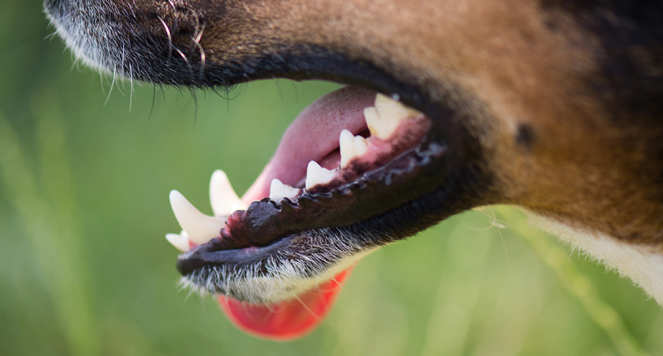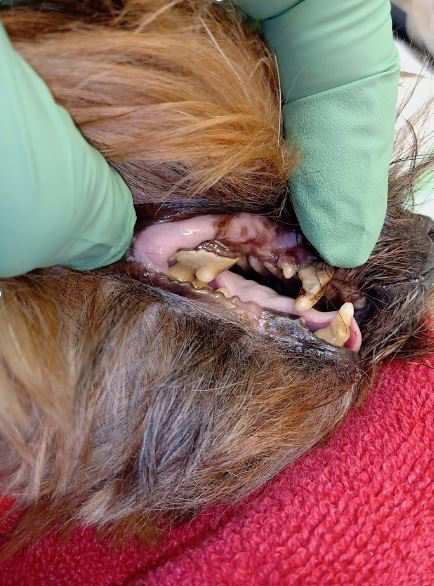Dental Health
Due to the advances in preventative healthcare over the last 20 years, cats and dogs are living longer. The downside to this is unless you brush your pets' teeth every day like you do your own then, your pet will develop dental disease. Should your pet need dental treatment we are fully equipped to perform dental x-rays, scaling, as well as polishing and extraction of unhealthy teeth.
Remember your pet will not stop eating if they have dental disease unless it is extremely advanced.
We are often asked how a pet will manage eating if a tooth needs to be extracted. The simple answer is that they eat a lot easier without a painful mouth.
Visit one of the nurse clinics and discuss dental disease prevention.
The Langford Club members get a 10% discount on dental procedures.
Top tips on how to prevent dental disease
- Brush your pet's teeth every day - it is best to use a pet-specific enzymatic toothpaste and a finger or soft toothbrush. Book an nurse clinic if you need help.
- There are many pets who will not tolerate tooth brushing. The use of enzyme gels and mouth wash can control the oral bacteria which form plaque. We have a variety of these available in the practice so pop in and speak to the team.
- Enzyme Chews - chews which are impregnated with enzymes. These are designed to provide mechanical action to clean the teeth and also to deposit enzymes in the mouth to inhibit plaque forming bacteria. We have a variety of chews available in the practice so pop in and pick up a supply and speak to the team. 10% off on TLC.
- Prescription Diets - Diets such as Hills TD will minimise plaque accumulation on teeth due to its mechanical action. The kibble has to be penetrated before it will break. With normal biscuit diets, the kibble shatters as the tooth hits it, providing little mechanical action.
Frequently Asked Questions
My pet’s teeth are brown and their breath smells, is it really a problem?
The smell is coming from bacteria in your pet’s mouth, which your pet will also be able to smell and taste. The bacteria will be:
- Damaging the structures that hold teeth securely in the jaw.
- Causing pain, especially as teeth start to loosen.
- Causing infection. The low grade, constant bacterial load causes strain to your pet’s immune system and organ function, increasing the risk of other diseases.
- Occasionally the bacteria can form an abscess around the tooth root, this is extremely debilitating and painful.
Can I use human toothpaste or mouthwash for my pet?
- In most cases human dental products contain high levels of fluoride to strengthen teeth. They are designed for use in people and not to be swallowed. If swallowed, they can be extremely dangerous.
- Human dental products are often very strongly mint flavoured or contain alcohol which pets normally find to be offensive flavours.
Do I have to brush my pet’s teeth EVERY DAY??
To have the best preventative effect, daily dental care is best and toothbrushing has been shown to provide the best effect.
I can’t brush my pet’s teeth, is there anything else I can use?
- Toothbrushing is the best preventative treatment, but it is not always possible for all dog and cat.
- A variety of other dental care products are available from food additives, dental foods or water additives. The effectiveness of these products is less well established, but some carry the VOHC logo (Veterinary Oral Health Council) which indicates that these products have been studied and are beneficial for your pet.




